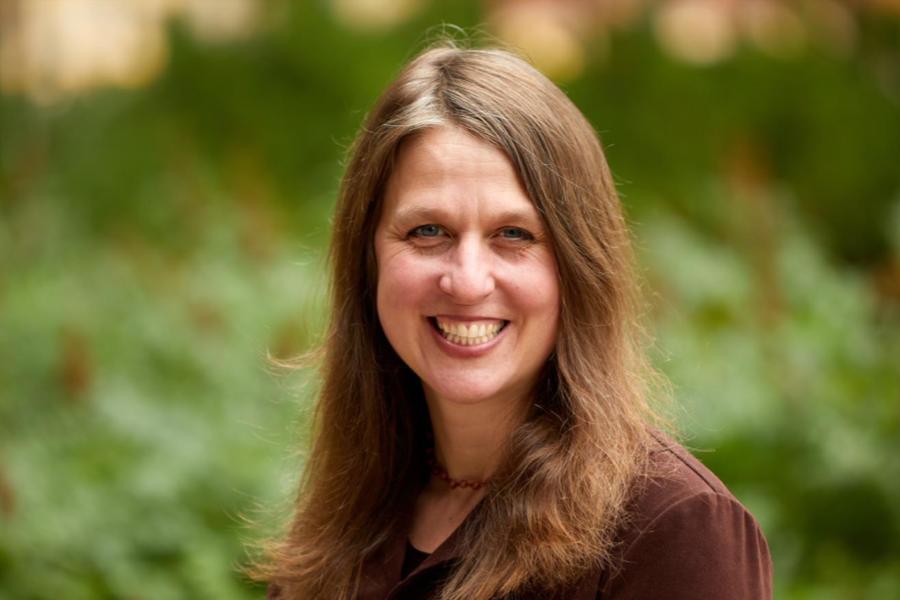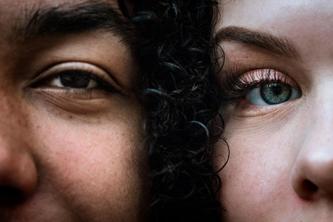
New U of M research shows that 1 in 34, or roughly 3%, of 8-year-old children in Minnesota, have been identified with autism spectrum disorder. Jennifer Hall-Lande, a psychologist and research associate at the Institute on Community Integration and the Masonic Institute of the Developing Brain, shares her expertise on how to support a child with autism.
Q: What is autism spectrum disorder?
Dr. Hall-Lande: Autism or autism spectrum disorder is a developmental disability that typically appears during the early childhood years and is characterized by challenges with social skills, communication and repetitive or atypical behaviors. Sensory issues and challenges with executive functioning are also common.
Autism is a spectrum and it is important to understand each child with autism has distinct strengths, challenges, behavior patterns and level of needs. Some children with autism may have difficulty learning skills while others may learn things quickly, but have trouble communicating ideas, adjusting to social situations, and applying their skills in their everyday living. In terms of needs, some children with autism may need significant support in their daily lives, while others may need less support and live independently.
Q: What are early signs of autism?
Dr. Hall-Lande: Signs of autism can emerge as early as infancy, but most children show signs by 2 years old. These early signs may be subtle, including reduced eye contact, lack of engagement with caregivers or peers, delayed language skills, lack of response to their name, repetitive movement or mannerisms, atypical interests, or sensory issues. Some children may develop typically for the first few months or years of their life, but then become withdrawn or lose language skills they have already acquired. If families notice any of these signs or have concerns, they should talk with their pediatrician or health care provider.
Q: How does autism affect children in Minnesota?
Dr. Hall-Lande: Recent studies show autism is no longer a low-incidence disability in Minnesota. About 1 in 34, or 3%, of 8-year-olds in Minnesota were identified with autism. If we think of that in terms of a typical third grade class, there is likely at least one child identified with autism in each class.
Autism in Minnesotan children also affects approximately four boys to every one girl and the average clinical diagnosis occurs at around 4-5 years. We know the earlier a child is identified — as early as 18 to 24 months — the better their developmental outcomes will be so we need to continue to build our capacity to support children with autism and their families.
Q. How can families support a child with autism?
Dr. Hall-Lande: Early diagnosis and early intervention are critical. Early diagnosis helps a child to receive the support and services that they need to support their growth and development. It can also help provide opportunities for families to build skills to support their child. Families should consult with their pediatrician or health care provider with any concerns. If their child is in school, connect with the school district for additional support and services within the educational setting.
Children with autism have unique strengths and challenges, so be sure to access the resources and professionals available to help them learn, grow and thrive.
Q. Where can families find more resources?
Dr. Hall-Lande: There are a wealth of free resources for families to learn about the early signs of autism:
- The Centers for Disease Control and Prevention’s “Learn the Signs. Act Early.” program provides free resources to track child development milestones and tips for acting early if families have concerns about children from birth to 5 years.
- Autism Navigator is a collection of online courses and videos for families of children with or at risk for autism.
- The Autism Society of Minnesota offers information, events and resources to support advocacy, education and collaboration for the the autism community.
- The Minnesota Autism Developmental Disabilities Monitoring network provides population-based data on the prevalence of autism and other developmental disabilities in Minnesota.
About Jennifer Hall-Lande
Jennifer Hall-Lande, Ph.D., is a psychologist and research associate at the Institute on Community Integration at the University of Minnesota. Dr. Hall-Lande does clinical work in child development, including early identification of autism spectrum disorder and other neurodevelopmental disabilities. Dr. Hall-Lande’s research focuses on autism spectrum disorder and intellectual disability prevalence and identification of developmental delays and disabilities. She is also an investigator on the Autism and Developmental Disabilities Monitoring Network and has led many projects for the Centers for Disease Control and Prevention’s “Learn the Signs. Act Early.” program.
-30-
About the College of Education and Human Development
The University of Minnesota College of Education and Human Development (CEHD) strives to teach, advance research and engage with the community to increase opportunities for all individuals. As the third largest college on the Twin Cities campus, CEHD research and specialties focus on a range of challenges, including: educational equity, teaching and learning innovations, children’s mental health and development, family resilience, and healthy aging. Learn more at cehd.umn.edu.
About “Talking...with U of M”
“Talking...with U of M” is a resource whereby University of Minnesota faculty answer questions on current and other topics of general interest. Feel free to republish this content. If you would like to schedule an interview with the faculty member or have topics you’d like the University of Minnesota to explore for future “Talking...with U of M,” please contact University Public Relations at [email protected].
- Categories:
- Health
- Early childhood




